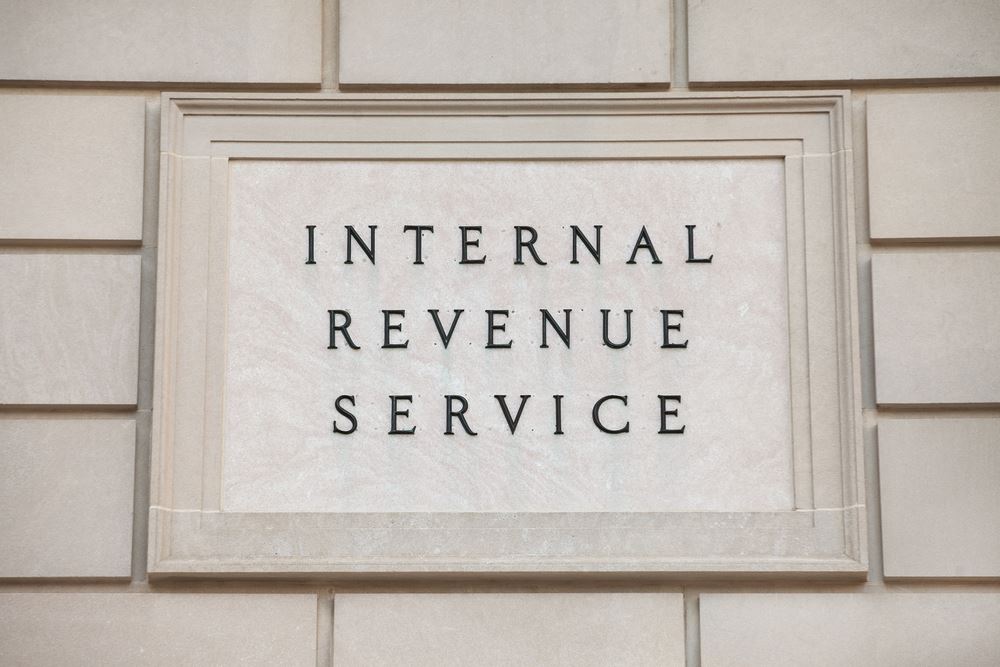Introduction
The market is saturated right now with everyone all trying to rush to create Qualified Opportunity Funds to get your money. The reason for all of this hype is that newly enacted tax provisions allow for the exemption of an unlimited amount of capital gain if the net gain is invested in Qualified Opportunity Zones.
For this reason, Castro & Co. has exhaustively researched the new Internal Revenue Code sections (“Sections”) 1400Z-1, 1400Z-2, and the regulations to streamline the ability of individuals to create their own Self-Managed Qualified Opportunity Funds.
A Self-Managed Qualified Opportunity Fund will empower you with the ability to control your own investments, have unlimited access to legal counsel for guidance at no additional cost, and eliminate all of the risk associated with transferring your wealth to shady companies pretending to know what a Qualified Opportunity Fund is.
Background
Sections 1400Z-1 and 1400Z-2 came into existence on December 22, 2017.[1] These two new provisions created what are now known as Qualified Opportunity Zones (“QO Zone”) in low-income areas.[2] The term “low-income community” is defined in Section 45D(e), which, in effect, permits independent certification of a census tract through independent data research and analysis.[3] Nevertheless, the IRS has published an extensive list of population census tracts that qualify.[4] A QO Zone is any population census tract nominated by a state or possession’s governmental executive and certified by the Secretary of the Treasury.[5] This creates a lot of state-level lobbying opportunities,[6] especially considering that tracts contiguous to qualified areas may qualify as well, which are areas not identified in the IRS Notice.[7]
For Puerto Rico, in recognition of the risk that the recent natural disasters have transformed traditionally economically healthy areas into temporary low-income areas, Congress limited the ability of the Governor of Puerto Rico to nominate areas and instead limited applicability to designated areas as of the date of the enactment of the statute, which was December 22, 2017.[8] Section 1400Z-1 also extends to U.S. possessions, which includes, but is not limited to, the American Samoa, Guam, Northern Mariana Islands, Puerto Rico, and the U.S. Virgin Islands.
Areas certified as QO Zones remain as such for 10 years.[9]
What is a Qualified Opportunity Fund
For those of you familiar with legal research, it’s a game of wordplay, so please bear with us as we analyze Section 1400Z-2. It’s critical to understand the terminology to avoid confusion, so this will not be a waste of your time.
Section 1400Z-2 allows taxpayers who sell or exchange any property to persons not identified in Sections 267(b) and 707(b)(1)[10] to reinvest, within 6 months, any portion of the net capital gain into a “Qualified Opportunity Fund.”[11] After 10 years, the entirety of the net capital gain originally invested is entirely tax-free as well as any gain on the QO Zone investment.[12] The tax savings could be astronomical.
What is a Qualified Opportunity Fund (“QO Fund”)? A QO Fund is any investment vehicle organized as a corporation or partnership whose average assets are at least 90% comprised of Qualified Opportunity Zone Property as of 6 months from formation and tax year-end annually.[13] If, in any month, a Qualified Opportunity Fund does not meet the 90% threshold, the Section 6621(a)(2) interest, which is usually around 6%, applies as a penalty to the portion needed to meet the 90% threshold.[14] Nevertheless, there is a reasonable cause exception, which our attorneys are experts at qualifying clients for.[15]
What is Qualified Opportunity Zone Property (“QOZ Property”)? QOZ Property is Qualified Opportunity Zone Stock, Qualified Opportunity Zone Partnership Interest, or Qualified Opportunity Zone Business Property. Basically, an operating corporation, an operating partnership, or an asset investment.
What is Qualified Opportunity Zone Stock? In short, it’s stock acquired or purchased at original issue only for cash from a corporation that plans to or is currently operating a Qualified Opportunity Zone Business (“QOZ Business”). What is Qualified Opportunity Zone Partnership Interest? In short, it’s any “capital or profits interest” acquired only for cash for or from a partnership that plans to or is currently operating a QOZ Business. You get the point; they’re running a business. So what is a QOZ Business? It’s any trade or business of which at least 70% of the owned or leased tangible assets,[16] if any, are Qualified Opportunity Zone Business Property (to be discussed below), 50% of gross income is active business income,[17] 70% of intangibles are used in the active conduct of the business,[18] and less than 5% of all purchased assets are financial assets, such as stock, options, warrants, notion principle contracts, and other financial contracts,[19] but specifically excluding working capital and inventory debt with no limitation 31 months but then within reasonable amounts thereafter.[20] Also, there is a list of disqualified businesses, which include golf clubs, country clubs, gambling businesses, massage parlors, suntan services, hot tub providers, and alcohol sales stores; however, a business where alcohol may be consumed on the premises is specifically permitted.[21]
Interestingly, if tangible property ceases to be QOZ Business Property for any reason, it will continue to be treated as qualified for 5 years or the date it’s sold or exchanged, whichever is sooner, but only for purposes of meeting the QOZ Business standard.[22]
Finally, this brings us to the elusive nature of what constitutes Qualified Opportunity Zone Business Property (“QOZ Business Property”)? In short, it’s any tangible property that is (1) used in a trade or business, (2) purchased from unrelated parties but only those identified by statute that generally include spouse, children, and parents as well as entities you influence, (3) already in a QO Zone or substantially improved by doubling the basis within 30 months and then moving the asset to a QO Zone, and (4) used thereafter in a QO Zone for at least 7 of the 10 years of the investment holding period.
Tangible property can include real estate, land, and other creative hybrid investments monumentally more secure than what is currently being offered. Contact us to discuss.

Compliance
The IRS has released the draft of Form 8996, Qualified Opportunity Fund. It’s shockingly simple and straightforward. The IRS has even published the 4 pages of Instructions for Form 8996, which make compliance even simpler. Our firm can show you exactly how to handle compliance, and we can also happily handle it for you as well.
Planning Opportunities
There are a ton of planning opportunities. The simpler ones being that 10% of the funds can be invested however you’d like, U.S. possessions like the Virgin Islands and Puerto Rico can be used to build a vacation/rental home or enter into those real estate markets, related party transactions that comply with Sections 267(b) can be implemented, and international tax planning strategies can be employed with the Virgin Islands or Puerto Rico involving intangibles like trademarks. On the more sophisticated end, there are planning opportunities involving complex hybrid financial instruments that reduce your at-risk amount to only 30% of the invested amount while still enjoying tax-free capital gains on the entire amount including any returns generated on the 70% no-risk amount.

Contact Our Firm
The purpose of this article is to demonstrate our knowledge and expertise. We have Qualified Opportunity Experts. We’re not here to get your investment money; we're here to empower you with the ability to do this on your own. We make the seemingly complex simple to understand, and simplicity is the ultimate sophistication.
Contact us today for a free consultation so we can get you started with your own Self-Managed Qualified Opportunity Fund.
[1] Budget Fiscal Year 2018, PL 115-97, 131 Stat 2054 (Dec. 22, 2017).
[2] See IRC § 1400Z-1(a).
[3] See IRC § 1400Z-1(c)(1) (citing IRC § 45D(e)).
[4] See IRS Notice 2018-48. Again, there may be more zones than those identified in this notice based on Section 45D(e).
[5] IRC § 1400Z-1(b)(1)(A)-(B).
[6] Castro & Co. can help with lobbying efforts.
[7] See IRC § 1400Z-1(e).
[8] See IRC § 1400Z-1(b)(3).
[9] See IRC § 1400Z-1(f).
[10] IRC § 1400Z-2(e)(2) (lower any references to 50% in Sections 267(b) and 707(b)(1) down to 20%).
[11] IRC § 1400Z-2(a)(1)(A).
[12] See IRC §§ 1400Z-2(b)(2)(A)(i), (c). In fact, it may generate a claimable loss. If the investment appreciates in value, the basis becomes fair market value after 10 years, which, based on the formula in the statute, would generate a loss since it would be original gain excluded minus fair market value. Nevertheless, the statute refers to an “amount of gain included,” so the IRS could deny the loss.
[13] See IRC § 1400Z-2(d)(1)(A)-(B).
[14] IRC § 1400Z-2(f)(1).
[15] IRC § 1400Z-2(f)(3).
[16] “If at least 70 percent of the tangible property owned or leased by a trade or business is qualified opportunity zone business property (as defined section 1400Z-2(d)(3)(A)(i)), the trade or business is treated as satisfying the substantially all requirement in section 1400Z-2(d)(3)(A)(i). The 70 percent threshold provided in these proposed regulations is intended to apply only to the term ‘substantially all’ as it is used in section 1400Z-2(d)(3)(A)(i).” Investing in Qualified Opportunity Funds, Part IV, Section G, 83 FR 54279-01.
[17] IRC § 1397C(b)(2).
[18] IRC § 1397C(b)(4).
[19] IRC § 1397C(b)(8).
[20] “The proposed regulations establish a working capital safe harbor consistent with section 1397C(e)(1), under which a qualified opportunity zone business may hold cash or cash equivalents for a period not longer than 31 months and not violate section 1397C(b)(8).” Investing in Qualified Opportunity Funds, 83 FR 54279-01.
[21] IRC § 1400Z-2(d)(3)(A)(iii) (citing IRC § 144(c)(6)(B)).
[22] IRC § 1400Z-2(d)(3)(B)(i)-(ii).


